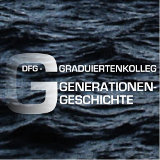Abstract Kristiane Gerhardt
In-depth historical research about concepts of Jewish masculinity during the 19th century is still at the beginning. The initial studies have dealt mainly with the ideal of the "muscle Jew" or mechanics of exclusion within the middle-class society. However, the first half of the 19th century was also a profound period of a change for Jewish masculinity. The formerly religious ideal of the learned Jew became less important with the erosion of the rabbinical culture. Instead, the middle-class values became increasingly more important for Jewish men.
This doctoral dissertation analyzes new definitions and demarcations of this transformation process from a traditional to a middle-class cultural system which is based on concepts of homogenization and assimilation.
The dynamics between generations play a role in several ways for this project. The changes in values, the historical consciousness and new definitions of masculinity are examined as factors correlating with each other. The value changes are also analyzed as a form of generational exchange between fathers and sons, between those generations who were socialised around 1800 in two cultural systems. Methodologically this project combines theories from Postcolonial Studies with perspectives from Historical Anthropology.

